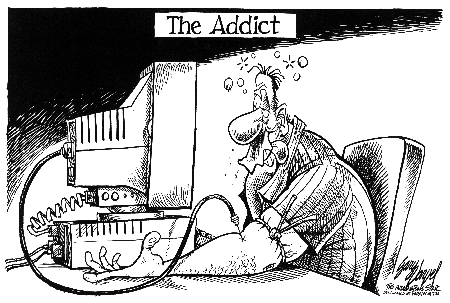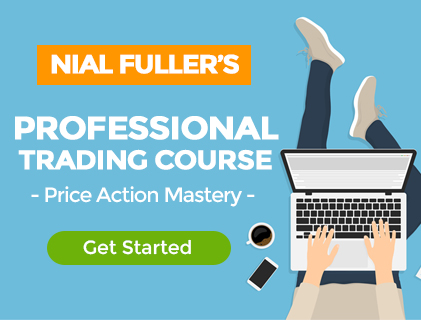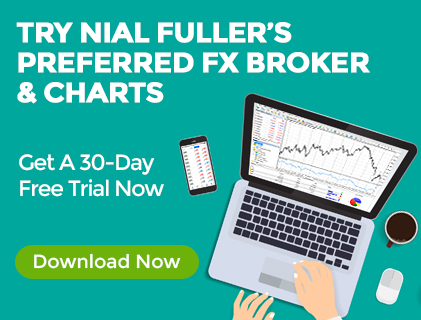 Have you ever wished you had a time machine so you could go back in time and avoid all the costly mistakes you made early-on in your trading career? Unfortunately, there is no time machine, but for all you beginning traders out there, you have the enormous advantage of being able to learn from those traders who are more experienced than you. If you apply a little commonsense and humility, you can learn a lot from mentors like myself who have been trading for decades.
Have you ever wished you had a time machine so you could go back in time and avoid all the costly mistakes you made early-on in your trading career? Unfortunately, there is no time machine, but for all you beginning traders out there, you have the enormous advantage of being able to learn from those traders who are more experienced than you. If you apply a little commonsense and humility, you can learn a lot from mentors like myself who have been trading for decades.
I’m not saying you will be able to avoid losing trades by reading this article, but I am saying you will be able to avoid making most of the stupid mistakes that traders typically make when starting out or because they are misinformed. Avoiding such mistakes can save you A LOT of money, time and mental anguish.
Here are the biggest things I wish I knew about trading back when I first started:
Pick one trading strategy, master it, stick with it
Many beginners come into the market and start trading live without even being sure what their entry and exit criteria are, they are literally just pushing buttons and hoping for the best, just like at a casino.
The first thing is to make sure you have an actual trading strategy and learn it. Don’t just learn it, master it. You need to become a master of one trading strategy and stick with it, otherwise you’ll never stand a chance in the markets.
Preserve capital in the early days
Traders tend to blow through their risk capital quickly in the early days, not really even thinking twice about the need for capital preservation. The ironic thing is, you will learn many lessons in the early days of trading but if you blow through all your money you will have little to no capital left by the time you actually know what you’re doing.
You need to survive long enough to get to the point where you can thrive. You don’t want to be so burnt out and blown out that you give up before you reach expert status. Trading isn’t only for the super-intelligent or super well-funded as many think. But you do have to persevere and overcome difficulty, especially in the early days. You need to learn to manage your capital and risk and make it last. Don’t go “all in” and get trigger happy or you will soon find yourself joining the ranks of losing traders. You don’t want to be a broke, expert trader.
Don’t focus on one asset class
Don’t just trade Forex, don’t just trade stocks, don’t just trade commodities, etc. I look at the major markets across different asset classes, because that is how you have the best overall opportunity to profit. I look at the major FX pairs, major indices and major commodities as well as researching potentially lucrative investments in companies. I keep my options open and don’t limit myself when it comes to the types of markets I trade or the investments I make.
However, that does not mean I am looking at every market under the sun. I actually don’t look at most markets, rather, I have several in each asset class that are my favorites and for the most part I stick to those. You can learn more about this in my article on the most profitable markets I trade.
Focus on trading performance not on the money
Most traders become fixated on their trading account balance. So much so that they only think it’s going to go up, and if it goes down they totally panic. This is perhaps the root cause of most trading failures; being overly-concerned with the money in your account instead of the performance of your account. Yes, they are two different things.
Your trading account performance is easily reflected in the equity curve of your account, which is something most trading platforms will provide you with via a report. Once you start being more concerned with a consistently rising equity curve, instead of the dollar value of your account, you will naturally start trading better.
That equity curve is not just a reflection of your trading account, it is also a reflection of you, your strengths, your weaknesses. Show me a consistently rising equity curve (even with some dips in between rises) and you will also be showing me a consistently disciplined, organized and properly focused person, not just a trader.
Your trading account performance is what you stay accountable to, not your account dollar value. You need to view that equity curve as an extension of yourself. If it starts nose-diving and you start blowing out all the progress you made, something is seriously wrong with your trading mindset and you need to address that asap. Keep the natural rise of the equity curve intact, gently rising over time, in an uptrend. That doesn’t mean there won’t be losses in between wins, but it should look like a pretty solid uptrend; higher highs and higher lows.
One of the keys to switching focus from account dollar value to equity curve, is realizing that you simply aren’t going to make a lot of money fast in the market. Unless you are starting with a large account (most of you aren’t) there is no way to safely and consistently make a lot of money quickly in the market. Just remove this notion from your head ASAP and you will be much further along than most. If you’re not trying to make “fast money”, your equity curve is probably going to be rising slowly but steadily over time, that is what you want.
“Don’t be a dick for a tick”
This is some of the most important advice you’ll ever get about trading: Don’t be a “dick” for a tick. Not to be crude, but this is important.
STOP trying to squeeze every last little pip or point out of a trade, because this is called GREED. It may not feel like it in the moment, but when a trade is up nicely for you (say 2 to 1 or more) and you are sitting there staring at it, still not taking the profit, you’re being greedy. The market is offering you a winner and you are saying “no, I want more!”. Well, the market doesn’t give a crap about what you want and it is just as happy to turn right back around and fall 200 pips against you as fast as it rose.
Bottom line: IF the market is near your desired / predetermined profit target but seems to be struggling there, just take the damn profit off the table or at least trail up your stop loss to lock in most of it. DO NOT let that winning trade end up a loser or breakeven, take the money and run!
You really don’t need indicators
Being a new trader this day in age has its advantages over 18 years ago when I started, but it also has its disadvantages. I’m sure it’s very confusing to a newbie because you see so many slick looking ads on facebook and google for trading systems and different gurus teaching you how to trade their fancy strategies. How do you know what to do or who to believe?
Really, truthfully, as far as technical analysis and trade entries / exits go, all you need is price action and an understanding of how to read the footprint on the chart. There is no magic indicator recipe, trust me, I researched and tried everything in my early days of trading. Moving averages are helpful in showing support / resistance and value areas, but beyond those I really don’t use indicators. ATR (average true range) for stop loss placement and I may look at volume in shares or commodity trades. That’s it.
If you really want to spend hours messing around with technical analysis indicators on your charts, be my guest, but I can think of 50 other ways to spend your time that are far more lucrative.
Be OK with being out of the market
Here’s something that might be a “newsflash” for you: Being out of the market is considered a position by the pros, the best traders know this but rarely is it talked about online or in discussion forums. Brokers want you in the market constantly, it’s in THEIR best interest but not yours! What is in your best interest is making money in the market, and the way you do that is from low frequency trading, which means the broker makes a lot less money from you.
When I was younger, I’d enter a trade, watch it all week then as soon as it closed I felt compelled to enter another one. It was very, very hard for me to not be in the market, and I suspect many of you still have this problem. This, honestly, is the biggest issue you must conquer to achieve winning months in the market, month after month. Say you take one good trade early on in the month, and you make say, 5% on your account from it. From there, you have two options; 1. find any reason under the sun to enter another trade right away, then do that again and again and see how you end up at month’s end (you will likely be negative instead of +5%) OR, wait patiently, likely how you did for the last winning trade and if that means not trading for a week or two, then at least you’re still up 5%!
You should view the market as a dangerous place that you can potentially profit from, but that you want to avoid risking your money in unless there’s a really obvious reason to do so.
Don’t get overly fixated on trading
 Trading, more specifically speculating, should not be viewed as your only income source. When you start viewing it this way you become overly attached to it and you generate a NEED for it to work out instead of it being an optional thing that you can be OK without.
Trading, more specifically speculating, should not be viewed as your only income source. When you start viewing it this way you become overly attached to it and you generate a NEED for it to work out instead of it being an optional thing that you can be OK without.
You should have retirement funds, slower long-term investments, cash savings, your job income, and trading, amongst other things. Don’t view trading as your ONLY option for life, liberty and happiness, or I promise you it will not work out.
I even hear of newbies quitting their day jobs as soon as they fund their live trading accounts. This is just lunacy. You NEED that consistent regular income coming in ESPECIALLY if you’re speculating in financial markets, not just to pay your bills but to keep a sound, calm mind, which you need if you want to have a chance at winning over the long-run in the markets.
Look at and trade what’s moving
One of the biggest reasons traders fail is trading low-volatility markets. Trades need volatility to have a chance of moving enough to make you money, you won’t make money without it. Instead, you will enter random trades when the market is just churning sideways and you will sit there watching your money churn and eventually take a loss or a tiny win that will just make you angry and cause you to want to jump back in the market again, losing more money. Look for strong trends and obvious price action signals that have confluence in the context of a market that is moving. Try to avoid sideways choppy markets.
Stick to higher time frame charts
If someone had come to me and told me to simply ignore any time frame under the 1 hour chart when I first got into trading, it would have saved me a lot of time and money.
You really need to avoid low time frames and ultra short-term trading if you want to have a chance at lasting trading success.
If you’ve followed me for a while now, you have probably stumbled across some of my articles on why I trade higher time frame charts. There are many good reasons why I believe the daily chart is the most important time frame for a trader to look at it. But, perhaps most importantly, is that the daily chart is going to “smooth out” all the B.S. of the short time frames and show you the most useful view of any market.
Conclusion
Unfortunately, time machines haven’t been invented yet. Fortunately, however, you can learn from my past mistakes and figure out how to avoid them, potentially saving you thousands. So, in an indirect way, you sort of can go “back in time”. You see, I’ve been in your shoes, I’ve thought what you’re thinking and I’ve experienced the same trading frustrations you’re experiencing and I’ve made it through to the “other side”. I have a virtual blueprint of what you should and should not do in regards to trading the market.
The 10 points of wisdom discussed above are critical components to trading success that, if you follow, will potentially save you thousands of dollars and countless hours of time. Many mistakes that traders make are pretty predictable, as we are all human and tend to behave the same way when trading the markets. Every trading hardship I’ve had, every “stupid” trading mistake I’ve made and every crazy trading approach I’ve tried have made me into the trader I am today. Many of these mistakes are discussed above and the lessons I’ve learned from them form a big part of the chapters and teachings in my professional trading course. If you want to succeed at trading, it’s critical that you put time and effort into learning and developing the winning mindset that is required to make money in the markets.
Please Leave A Comment Below With Your Thoughts On This Lesson…
If You Have Any Questions, Please Contact Me Here.


منبع: https://www.learntotradethemarket.com/forex-articles/what-i-wish-i-knew-about-trading-18-years-ago
